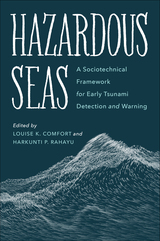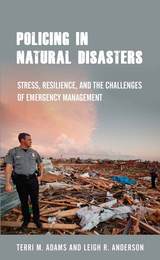
Coeditors Louise K. Comfort and Harkunti P. Rahayu, accomplished experts in disaster preparedness, contend that it will give communities precious additional minutes to communicate warnings about imminent tsunamis to residents, potentially saving many lives. Chapters authored by a close group of collaborators present the science behind this new approach, describing conceptual design, computational models, and real-time testing of a prototype system in the warm equatorial waters of Indonesia’s Mentawai Sea. Introductory chapters explain the sociotechnical approach—how undersea sensors can transmit data to a network of electronic devices on land to alert residents to impending tsunami threats in near-real time. Subsequent chapters explore what this might look like: assessing communities at risk; designing interactive information systems for communication during an emergency; designing wireless networks for smartphone communication that can guide residents to safety; and designing community-based shelters. The book concludes with a thoughtful analysis of how these sociotechnical advances might be used for all coastal cities at risk of tsunamis, sea-level rise, storm surges, and other hazards.
Hazardous Seas is an invaluable guide for policy makers and international NGOs looking to save lives from tsunamis and mitigate crippling damage to communities, and provides a comprehensive overview of tsunami detection and warning for students of engineering, computer science, planning, policy, and economic and environmental analysis.

When natural disasters and emergencies strike, the short- and long-term effects of these events on first responders—the very people society relies upon in the midst of a catastrophe—are often overlooked. Policing in Natural Disasters provides a comprehensive analysis of the major challenges faced by law enforcement officers during extreme crisis events. Terri Adams and Leigh Anderson examine the dilemmas police departments face as well as the impact of the disasters on the professional and personal lives of the officers. Case studies explore the response and recovery phases of emergencies including Hurricane Katrina, the 2010 earthquake and subsequent tsunami in Santiago, Chile, and the Superstorm Tornado Outbreak in 2011.
Policing in Natural Disasters was inspired by the personal accounts of triumph and tragedy shared by first responders. It provides an understanding of first-responder behaviors during disasters, as well as the preparedness, mitigation, response and recovery policy implications for first responders and emergency managers. As first responders must frequently cope with stress, uncertainty, and threats to their health and safety during high-consequence events, Adams and Anderson provide lessons from first-hand experiences of police officers that can lead to better management in times of crisis.
READERS
Browse our collection.
PUBLISHERS
See BiblioVault's publisher services.
STUDENT SERVICES
Files for college accessibility offices.
UChicago Accessibility Resources
home | accessibility | search | about | contact us
BiblioVault ® 2001 - 2024
The University of Chicago Press









